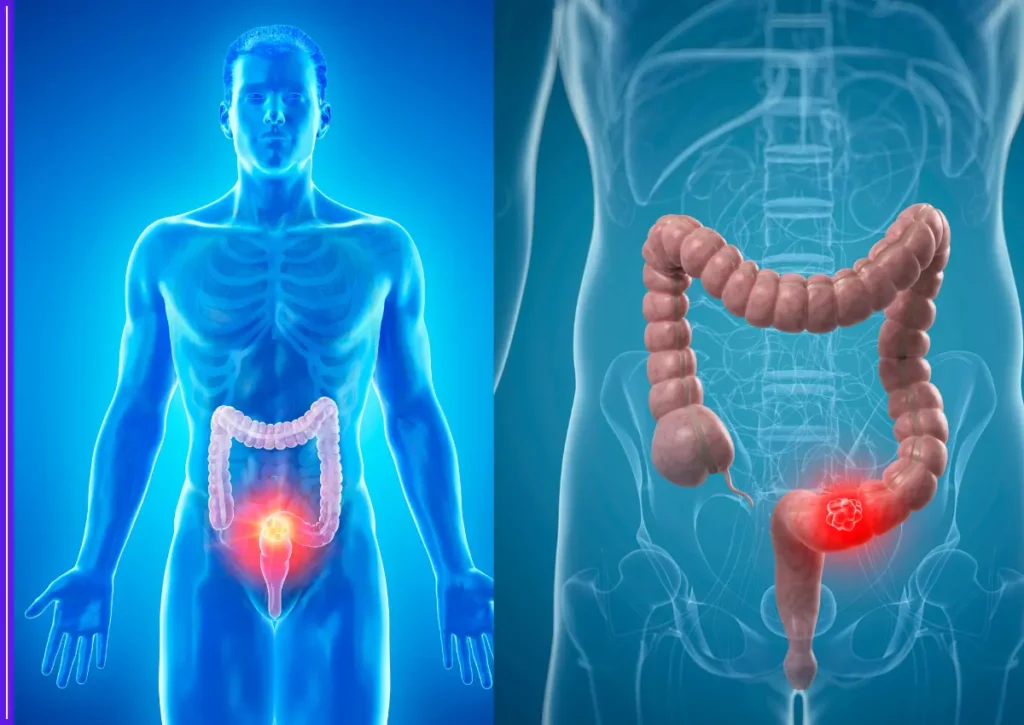Colon cancer, known as colorectal cancer, is one of the most common cancers worldwide, yet many of its early warning signs go unnoticed or are mistaken for less serious health problems. Doctors warn that the disease can develop silently for years, making awareness of symptoms a crucial part of early detection. Health experts say identifying these signals early can significantly improve treatment outcomes and survival rates.
Recent data from the World Health Organization shows colorectal cancer is the third most common cancer globally and the second leading cause of cancer-related deaths. While it often affects people over 50, cases among younger adults have been rising in recent years. Lifestyle factors such as poor diet, lack of exercise, smoking, and excessive alcohol consumption are known contributors, along with genetic predisposition and certain medical conditions like inflammatory bowel disease.

Here are five symptoms that experts say are often ignored but could be signs of colon cancer.
1. Changes in Bowel Habits
Persistent changes in bowel movements are one of the earliest red flags. This can include diarrhea, constipation, or a change in stool consistency that lasts more than a few weeks. While occasional irregularity is common, ongoing changes—especially if they are accompanied by discomfort—should be checked by a doctor. In some cases, the stool may appear narrower than usual, which could signal a blockage in the colon.
2. Blood in Stool or Rectal Bleeding
Noticing blood in the stool is often alarming, but many people attribute it to hemorrhoids or minor injuries. While those conditions are common, blood in the stool—whether bright red or dark and tarry—can also be a sign of bleeding inside the colon or rectum caused by a tumor. Doctors stress that any unexplained rectal bleeding should be evaluated promptly.
3. Unexplained Weight Loss
Losing weight without changing diet or exercise habits can be a symptom of several health conditions, including colon cancer. Tumors can alter the body’s metabolism, trigger inflammation, and reduce appetite, leading to significant weight loss over a short period. This symptom is often overlooked, especially if it is gradual, but should never be ignored if it happens without explanation.
4. Persistent Fatigue and Weakness
Ongoing tiredness that does not improve with rest can indicate anemia caused by slow, chronic blood loss from the digestive tract. In colon cancer, tumors can bleed gradually, depleting red blood cells and reducing oxygen delivery to tissues. This often results in fatigue, dizziness, and weakness. Many people attribute tiredness to stress or busy schedules, but if it persists, medical evaluation is essential.
5. Abdominal Discomfort or Cramping
Recurring abdominal pain, bloating, or cramping can be linked to colon cancer, especially if it is persistent and accompanied by other symptoms. Tumors can partially block the colon, causing discomfort and changes in digestion. While abdominal pain is common for many minor conditions, consistent pain that has no clear cause should be taken seriously.
Doctors emphasize that these symptoms do not always mean colon cancer. They can be caused by a range of other conditions, but the key factor is persistence and the combination of symptoms. Early-stage colon cancer often has few or no obvious signs, so regular screenings remain the most effective way to detect the disease before it spreads.
Why Early Detection Matters
When colon cancer is detected early, treatment options are more effective and less invasive. The five-year survival rate for localized colon cancer is over 90 percent, but it drops sharply once the disease spreads to other organs. This is why medical experts recommend regular colonoscopies starting at age 45 for average-risk individuals, and earlier for those with a family history or other risk factors.
Prevention and Lifestyle Choices
While not all cases can be prevented, lifestyle changes can lower the risk. A diet rich in fiber from fruits, vegetables, and whole grains supports healthy digestion. Reducing red and processed meat intake, limiting alcohol, avoiding tobacco, and maintaining a healthy weight are all linked to lower colon cancer risk. Regular physical activity is also beneficial, as it helps regulate digestion and reduces inflammation.
Younger Adults at Risk
One concerning trend is the rise in colon cancer diagnoses among people under 50. Researchers are still studying why this is happening, but possible factors include dietary changes, sedentary lifestyles, and gut microbiome imbalances. Younger patients are more likely to dismiss symptoms, delaying diagnosis and making the disease more advanced when it is found.
When to See a Doctor
If you notice any of these five warning signs—especially in combination—it’s important to consult a healthcare provider. Doctors can use stool tests, imaging scans, and colonoscopies to determine the cause. Even if the symptoms are due to a less serious condition, ruling out cancer is crucial for peace of mind and safety.
Public health campaigns continue to stress the importance of awareness. “The biggest challenge we face is that people delay getting checked,” said a senior gastroenterologist at a Bengaluru hospital. “By the time they come in, the disease has often progressed. We want to change that by making people more aware of subtle symptoms.”
Colon cancer is a disease where early intervention can save lives. Understanding the signs, seeking timely medical advice, and prioritizing screenings can make a significant difference. For many, paying attention to the body’s signals—and not dismissing them as minor—could be the step that leads to life-saving treatment.









